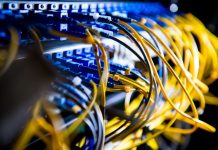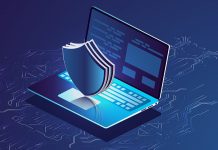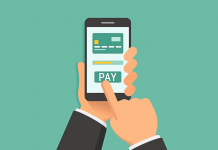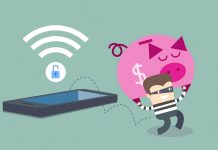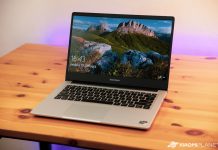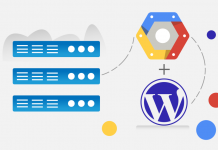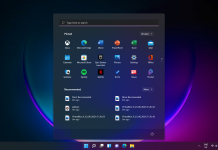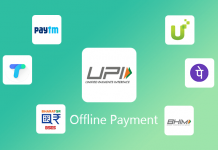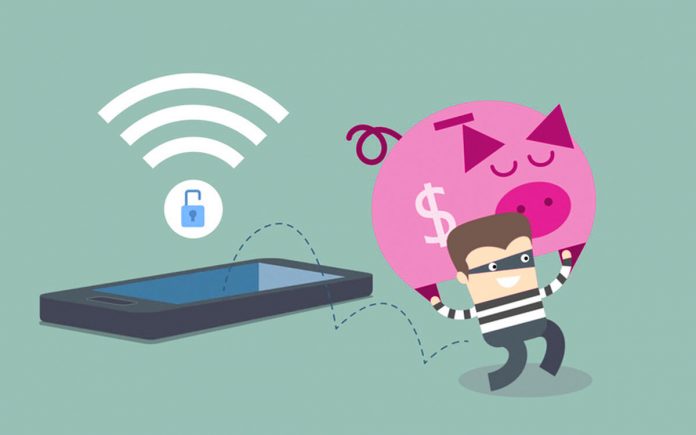6 Tips to be Safe While Using Public Wi-Fi Networks
1. Verify the Network; Configure and Turn off Sharing
If you are using any public Wi-Fi at a public place then make sure your Wi-Fi is verified. To verify your Wi-Fi you can contact the concerned authority. Often hackers create fake Wi-Fi to steal personal data from the users. For better protection, connect your Wi-Fi through an IP address.
Remember that hackers are very clever, so it’s better to surf and play smart. Read the network name very carefully and ask an employee of the business if the link is legitimate. You can also ask the offering IP address. As mentioned above, hackers often set up fake networks, so verify the name to avoid being a victim.
Another important thing to consider, when connected to the public internet, do you really need to have sharing preferences turned on? Obviously, not! So right after you verify the network, turn off the file sharing option. File sharing is usually pretty easy to turn off from the system preferences or control panel, depending on your operating system.
2. Use a VPN
A VPN (Virtual Private Network) is the most secure option to surf on public networks. It is one of the most useful tools to help people keep their information secure when logged on to public networks.
VPNs encrypt your data traffic and act as a protected tunnel between the client (browser) and server. All the data passing through the tunnel won’t be visible to hackers and they won’t be able to access your information and the activities you do online.
Another potential benefit to VPNs, is they mask your IP with their own IP address from different locations. You could physically be in Australia, but your VPN would show that you’re in a different location.
Not all VPN services are created equal. There are some free VPNs that are less secure than the paid ones. Paid VPNs do cost some money, but they give additional security to your needs. Here is the list of best VPNs that help guarantee your privacy and security.
3. Use HTTPS
If you don’t have access to a VPN, making sure you are only visiting encrypted sites can also help protect your data from some of the threats outlined above.
Whenever you use public Wi-Fi make sure to use HTTPS while opening any website, that the web address has HTTPS before it. Due to this the data will stay protected and hackers cannot steal it.
Look for HTTPS at the beginning of a website’s address. This means the connection between the browser and the web server is encrypted, so any data that is submitted to the website will be safe from eavesdropping or tampering. Most browsers also include a padlock symbol at the beginning of the address to indicate the site uses encryption.
4. Keep the Firewall Enabled
Turning on the firewall can prevent hackers’ unauthorized external access to your system. A firewall won’t provide complete protection, but it’s a setting that should always be enabled.
A firewall also acts as a barrier that protects your device from data-based malware threats. It actively monitors the data packets that come from networks and checks whether they’re safe or not. If it sees any malicious data packet, it gets blocked by the firewall. By blocking certain kinds of data, the firewall protects your computer or network and safeguards your data from attacks.
Usually we turn off the Windows firewall because of the annoying pop ups and notifications and then just completely forget about it. If you want to restart it, then head over to the Control Panel, go to “System and Security” and select “Windows Firewall”. If you are a Mac user, you can go to “System Preferences”, then “Security & Privacy”, then “Firewall” tab and enable Firewall on Mac.
5. Use Antivirus
Anti-virus acts as an important tool for your laptop or phone. Using an anti-virus can keep your devices safe and secure. If your device has an antivirus installed, then it can detect any unauthorized activity by hackers. It can detect any kind of virus trying to get into your device.
Antivirus can help protect you while using public Wi-Fi by detecting malware that might get into your system while using the shared network. Always make sure to use the latest versions of the antivirus program that is installed on your device. An alert will be shown if any known viruses are loaded onto your device or if there’s any suspicious activity, malicious attack, or malware gets into your system via network.
6. Don’t Give Away Too Much Info
Be very wary of signing up for public Wi-Fi access if you’re getting asked for a bunch of personal details, like your email address or your phone number. If you absolutely have to connect to networks like this, stick to places you trust (see above) and consider using an alternative email address that isn’t your primary one.
Stores and restaurants that do this want to be able to recognize you across multiple Wi-Fi hotspots and tailor their marketing accordingly, so it’s up to you to decide whether the trade-off is worth it for some free internet access.
Other Important Tips to Stay Safe using Public Wi-Fi Networks
Other than mentioned above tips, here are some more recommended tips of keeping your system secure on public Wi-Fi:
- Always turn off automatic connection.
- Use 2 factor authentication – this way, even if a hacker obtains your username and password, they still won’t be able to access your accounts.
- Always check the network after using public Wi-Fi.
- Don’t run financial transactions over public networks.
The biggest threat to free Wi-Fi security is the ability for the hacker to position himself between you and the connection point. Hackers can also use an unsecured Wi-Fi connection to distribute malware. If you allow file-sharing across a network, the hacker can easily plant infected software on your computer.
Join Telegram Group of Daily Jobs Updates for 2010-2023 Batch: Click Here
If You Want To Get More Daily Such Tech Updates. Then Join the Telegram Group From Above Link Also Press Red Bell Icon At The Left Side of Page To Subscribe our Updates.
TikTok Careers 2021 Hiring Freshers as Intern for Seattle, Washington: Click here
Infosys Recruitment 2021 For Freshers has been Started Across India: Click here
Accenture Hiring Freshers of Package 4.5 LPA Across India: Click here
Why You’re Not Getting Response From Recruiter?: Click here
Top 5 High Salary Jobs in India IT Sector 2021: Click here
Whats is the Difference Between CV and Resume?: Click here
How To Get a Job Easily: Professional Advice For Job Seekers: Click here
A Leadership Guide For How To Win Hearts and Minds: Click here
Ways To Find Peace of Mind and Inner Calm In Today’s Stressful Life: Click here
How To Improve Communication Skills with 12 Strategy: Click here
Career Tips for Freshers: Top 7 Hacks To Land Your Target Job: Click here
Which Graphics Processor is Best for Gaming 2021?: Click here
Feel Like Demotivated? Check Out our Motivation For You: Click here
Top 5 Best Mobile Tracking App in 2021 For Mobile & PC: Click here
5 Proven Tips For How To Look Beautiful and Attractive: Click here
Home Workouts During The Lockdown For Fitness Freaks: Click here








